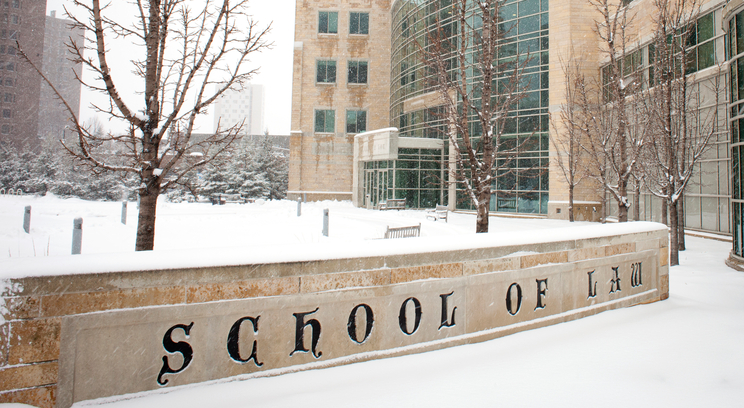The University of St. Thomas School of Law this fall will begin offering two graduate degrees in the field of organizational ethics and compliance. They are the master of studies in law (M.S.L.), for students who have completed a bachelor’s degree, and the master of laws (LL.M) for those who already hold the traditional law degree of juris doctor.
Offering the new graduate law programs is a historic move for the downtown Minneapolis law school, which has exclusively offered the full-time juris doctor program since its founding. St. Thomas will be one of a handful of universities nationwide, and the only one in Minnesota, offering advanced degrees in this field.
The move comes in response to employers who have answered increased government regulations by rapidly adding jobs for compliance professionals, even in times of high national unemployment. Large federal undertakings like the Affordable Care Act and the Dodd-Frank Act have further strengthened compliance professionals’ critical role within corporations.
“There is an immediate demand for talent that understands legal theory, laws, regulations, and rules applicable to financial services, pharmaceuticals and other industries,” said Yvette Hollingsworth, executive vice president and chief compliance officer for Wells Fargo and a member of the law school’s Organizational Ethics and Compliance Advisory Board. “The St. Thomas School of Law’s compliance programs set the foundation for a career in the fields of compliance or risk management.”
Developed with the guidance of leading compliance professionals working in major corporations, the M.S.L. and LL.M. programs can be taken on a full- or part-time basis and completed in one or two years. With a wide selection of elective courses, the programs can be tailored to fit the needs of individuals interested in all sectors of compliance work.
“Time and again, we’ve heard from employers that the pool of qualified compliance candidates is not deep enough to satisfy demand,” School of Law Dean Robert Vischer said. “As corporations navigate today’s regulatory and governance challenges – and position themselves to meet those that have yet to emerge – they will need to depend on professionals who know how to follow the rules, but who also can think critically, motivate others, and respond to change without losing sight of business objectives or core organizational values.”
“In our highly regulated global business environment, I see a real opportunity for professionals across many disciplines to meet the rising need for compliance expertise,” added Tom Schumacher, vice president and chief ethics and compliance officer for Medtronic and an advisory board member. “An academically rigorous, practical learning opportunity to provide expertise in navigating complex legal requirements and principles is exactly what we need.”
Courses will be taught by full-time faculty from the School of Law and St. Thomas’ Opus College of Business – both of which are known nationwide for their research and programming on ethics and professionalism – along with leading compliance professionals. The advisory board will continue to be instrumental in shaping the programs on an ongoing basis to ensure they meet the needs of corporations.
“The compliance field has seen tremendous growth over the past decade, not just in the number of jobs, but in the complexity of the challenges that confront compliance professionals,” said Carolyn Brue, assistant general counsel and assistant vice president for ethics and compliance for Cargill and an advisory board member.
“This growth suggests that our field is ready for a graduate-level degree program, and St. Thomas has set a high standard by creating an academically rigorous program that reflects the interdisciplinary nature of compliance work,” Brue said.
For more information, visit the School of Law’s website.







